Chris Hedges's Blog, page 380
December 25, 2018
Kevin Spacey Criminally Charged in Sex Case
BOSTON — Kevin Spacey has been charged with groping the 18-year-old son of a Boston TV anchor in 2016 — the first criminal case brought against the Oscar-winning actor since his career collapsed amid a string of sexual misconduct allegations over a year ago.
Spacey, 59, is due in court Jan. 7 on the resort island of Nantucket to be arraigned on a charge of indecent assault and battery, Cape and Islands District Attorney Michael O’Keefe said in a statement Monday. Spacey could get up to five years in prison if convicted.
A criminal complaint was issued by a clerk magistrate at a hearing Thursday, O’Keefe said. Shortly after the charge became public, Spacey posted a video on YouTube titled “Let Me Be Frank,” breaking a public silence of more than a year.
In a monologue delivered in the voice of Frank Underwood, his character on Netflix’s “House of Cards” who was killed off after the sexual misconduct allegations emerged, he said: “Of course some believed everything and have just been waiting with bated breath to hear me confess it all; they’re just dying to have me declare that everything they said is true and I got what I deserved. … I’m certainly not going to pay the price for the thing I didn’t do.”
He added, “Soon enough, you will know the full truth.” The three-minute video ended with a burst of cliffhanger music.
A spokeswoman for the actor did not immediately respond to messages seeking comment.
Former news anchor Heather Unruh came forward in November 2017 to say the actor stuck his hand down the pants of her son, who was 18 at the time, and grabbed his genitals at the Club Car Restaurant on Nantucket in July 2016. Her son fled the restaurant when Spacey went to use the bathroom, Unruh said at the time.
Unruh said her son didn’t report the assault right away because he was embarrassed.
“The complainant has shown a tremendous amount of courage in coming forward,” Mitchell Garabedian, a lawyer for Unruh’s son, said in a statement Monday. “Let the facts be presented, the relevant law applied and a just and fair verdict rendered.”
Spacey remains under investigation on suspicion of sexual assault in Los Angeles for an incident that allegedly occurred in 2016. Prosecutors declined to file charges over a 1992 allegation because the statute of limitations had run out.
He has also faced accusations of sexual misconduct from his time as artistic director of London’s Old Vic Theatre.
The two-time Oscar winner was among the earliest and biggest names to be ensnared in the #MeToo movement that was sparked by sexual assault and harassment allegations against Hollywood studio boss Harvey Weinstein in October 2017.
His first accuser, actor Anthony Rapp, said Spacey climbed on top of him on a bed when Rapp was 14 and Spacey 26. Spacey said he did not remember such an encounter but apologized if the allegations were true. Spacey also used the statement to disclose he is gay.
Other accusers followed Rapp’s lead.
Spacey was subsequently fired from “House of Cards,” the political drama in which he starred for five seasons, and his performance as the oil tycoon J. Paul Getty was cut from the completed movie “All the Money in the World” and reshot with actor Christopher Plummer. Some other projects he was involved in were shelved.
The case against Spacey represents a rare criminal prosecution in the #MeToo era. Weinstein is awaiting trial in New York, but many other cases have been too old to prosecute, and some accusers have declined to cooperate with authorities.
___
Dalton reported from Los Angeles.

Jets Fire Missiles at Damascus Area; Israel Said to Target Hezbollah
BEIRUT—Warplanes flying over Lebanon fired missiles toward areas near the Syrian capital of Damascus late Tuesday and some of the missiles were shot down by air defense units, Syrian state TV said. There was no immediate word on casualties.
While Syrian television didn’t identify the planes, Lebanon’s state-run National News Agency reported that Israeli warplanes were flying at low altitude over parts of southern Lebanon and the Britain-based Syrian Observatory for Human Rights, a war monitor, said Israeli airstrikes targeted three positions south of Damascus that are arms depots for Lebanon’s militant Hezbollah group and Iranian forces..
The reported attack near Damascus is the first since U.S. President Donald Trump announced last week that the U.S. will withdraw all of its 2,000 forces in Syria, a move that will leave control of the oil-rich eastern third of Syria up for grabs.
Nearly an hour after the attacks began, Damascus residents could still hear the air defense units firing toward targets in the air.
“The aggression is still ongoing,” said a presenter on state TV, which interrupted its programs to air patriotic songs.
Meanwhile, Israel’s military spokesman unit also reported action, though it did not confirm air attacks. It said in a statement that “an aerial defense system was activated against an anti-aircraft missile launched from Syria.” No damage or injuries were reported by the Israeli military.
Israel is widely believed to have been behind a series of airstrikes in the past that mainly targeted Iranian and Hezbollah forces fighting alongside the government in Syria. Tuesday’s attack is the first since a missile assault on the southern outskirts of Damascus on Nov. 29.
Russia announced it had delivered the S-300 air defense system to Syria in October. That followed the Sept. 17 downing of a Russian reconnaissance plane by Syrian forces responding to an Israeli airstrike, a friendly fire incident that stoked regional tensions.

Second Guatemalan Child Dies in U.S. Immigration Custody
HOUSTON—An 8-year-old boy from Guatemala died in government custody in New Mexico early Tuesday, U.S. immigration authorities said, marking the second death of an immigrant child in detention this month.
U.S. Customs and Border Protection said in a news release that the boy died shortly after midnight.
The death came during an ongoing dispute over border security and with a partial government shutdown underway over President Donald Trump’s request for border wall funding. The White House referred questions to the U.S. Department of Homeland Security, CBP’s parent agency. CBP officers and the Border Patrol remain on the job despite the shutdown.
The agency said the boy showed “signs of potential illness” on Monday and was taken with his father to a hospital in Alamogordo, New Mexico, where he was diagnosed with a cold and a fever. The boy was prescribed amoxicillin and Ibuprofen and released Monday afternoon after being held 90 minutes for observation, the agency said.
The boy was returned to the hospital Monday evening with nausea and vomiting and died there just hours later, CBP said.
According to Guatemala’s foreign ministry, the father and son entered the U.S. at El Paso, Texas, on Dec. 18, then were taken to the Border Patrol’s Alamogordo station Sunday. Alamogordo is about 90 miles (145 kilometers) from El Paso.
CBP typically detains immigrants for no more than a few days when they cross the border before either releasing them or turning them over to U.S. Immigration and Customs Enforcement for longer-term detention. Agency guidelines say immigrants generally shouldn’t be detained for more than 72 hours in CBP holding facilities, which are usually smaller and have fewer services than ICE’s detention centers.
Parents and children together are almost always released quickly due to limited space in ICE’s family detention facilities.
A CBP spokesman on Tuesday did not respond to questions about the ministry’s statement. CBP has not yet confirmed when or where the father and son entered the United States or how long they were detained, saying only in its statement that the boy had been “previously apprehended” by its agents.
The agency said the cause of the boy’s death has not been determined and that it has notified the Department of Homeland Security’s inspector general and the Guatemalan government.
The hospital — the Gerald Champion Regional Medical Center — declined to comment, citing privacy regulations.
CBP promised “an independent and thorough review of the circumstances.”
The Guatemalan foreign ministry called for an investigation “in accordance with due process.”
Ruben Garcia, director of El Paso’s Annunciation House, said Tuesday that he had no reason to believe his shelter had served the family, but was waiting for further details about what happened.
A 7-year-old Guatemalan girl died earlier this month after being apprehended by border agents in New Mexico. The body of the girl, Jakelin Caal, was returned to her family’s remote village Monday for burial Tuesday.
Large numbers of Guatemalan families have been arriving in recent weeks in New Mexico, often in remote and dangerous parts of the desert. Jakelin and her father were with 161 other people when they were apprehended in Antelope Wells, about 230 miles (370 kilometers) southwest of Alamogordo.
CBP announced new notification procedures in response to Jakelin’s death, which was not revealed until several days later.
Democratic members of Congress and immigration advocates sharply criticized CBP’s handling of the death and questioned whether border agents could have prevented it by spotting symptoms of distress or calling for an evacuation by air ambulance sooner. CBP has said that it took several hours to transport Jakelin and her father from a remote Border Patrol facility to a larger station and then a hospital in El Paso.
A spokeswoman for U.S. Rep. Steve Pearce, a Republican whose district along the U.S.-Mexico border includes Alamogordo, did not respond to messages Tuesday.
Xochitl Torres Small, a Democrat who will represent the district starting in January, called for a thorough and transparent investigation into the children’s deaths and more medical resources along the border.
“This is inexcusable,” she said in a statement Tuesday. “Instead of immediately acting to keep children and all of us safe along our border, this administration forced a government shutdown over a wall.”
___
Contributing to this report were Associated Press journalists Mary Hudetz in Albuquerque, New Mexico; Sonia Perez D. in Guatemala City; and Mark Stevenson in Mexico City.

Truthdig’s Best 10 Arts and Culture Articles of 2018
This year’s top Truthdig Arts and Culture stories include wisdom from musician Willie Nelson, a podcast host with a strong dislike for centrist liberals, and gender theorist Judith Butler. These articles help show how media can expose inequality and explain politics.
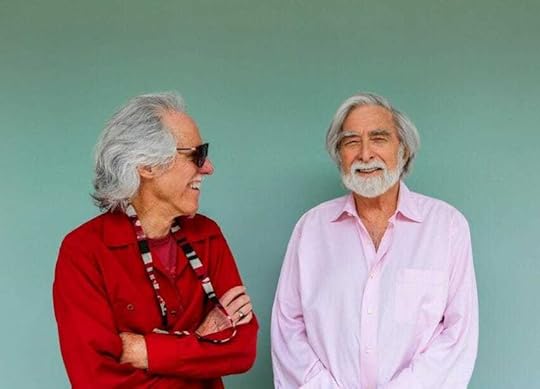 The Doors’ John Densmore on Jim Morrison, John Lennon, Oliver Stone and the New Protest Generation
The Doors’ John Densmore on Jim Morrison, John Lennon, Oliver Stone and the New Protest Generation
By Robert Scheer
Truthdig Editor in Chief Robert Scheer and musician Densmore discuss the Vietnam protests, the activism behind The Doors’ music and more.
 Michael Moore Attempts Another Election Intervention With ‘Fahrenheit 11/9’
Michael Moore Attempts Another Election Intervention With ‘Fahrenheit 11/9’
By Jordan Riefe
The filmmaker’s audiences are treated to another serving of his docu-tainment, which makes some strong points—but too many leaps.
 Fans Outraged by Willie Nelson’s Politics Haven’t Been Paying Attention
Fans Outraged by Willie Nelson’s Politics Haven’t Been Paying Attention
By Robert Scheer and Kasia Anderson
A look back at Nelson’s interview after the country legend kicked up dust by playing a benefit concert for Ted Cruz’s Democratic challenger.
 The Right to Be Who You Are
The Right to Be Who You Are
By Emily Wilson
Queer theorist and UC Berkeley professor Judith Butler on life for bi, lesbian, gay and trans people and their struggle for acceptance. Quincy Jones Knows Why Hillary Clinton Is So Disliked
Quincy Jones Knows Why Hillary Clinton Is So Disliked
By Eric Ortiz
In a wide-ranging interview with Vulture, the music legend discusses his relationships with the Clintons and the Trumps and more.
 In Reality, Every Night Is ‘Purge’ Night
In Reality, Every Night Is ‘Purge’ Night
By Leslie Lee III
Class- and race-conscious and uncomfortably relevant, the politically charged horror franchise isn’t just a big-screen nightmare.
 A Fresh Look at Labor Issues in ‘Sorry to Bother You’
A Fresh Look at Labor Issues in ‘Sorry to Bother You’
By Jordan Riefe
Boots Riley’s film takes on casual and institutional racism, corporate greed, class subjugation and coarsening public discourse.
 Native Voices Unite to Defend Sacred Lands
Native Voices Unite to Defend Sacred Lands
By Barbara Dunlap
As a lawsuit challenges the slashing of the Bears Ears Monument, Native Americans point to the area’s spiritual and cultural significance.
 Chapo Trap House Imagines the Most Perverse Outcome of Trump’s Presidency
Chapo Trap House Imagines the Most Perverse Outcome of Trump’s Presidency
By Jacob Sugarman
Podcaster Matt Christman on the failures of liberalism and the need for the left to grab hold of our “economic death engine.”
 Filmmaker-Photographer Lauren Greenfield on Rise of ‘Generation Wealth’ and Fall of the Empire
Filmmaker-Photographer Lauren Greenfield on Rise of ‘Generation Wealth’ and Fall of the Empire
By Jordan Riefe
Greenfield’s latest documentary looks at the pathology of greed and fame. “I thought the financial crash was going to teach us,” she said.

The Best Truthdig Originals of 2018
This year’s top Truthdig Original pieces include stark warnings from Chris Hedges, Bill Boyarsky and several regular contributors, as well as a peek into the possible future of U.S. banking courtesy of Ellen Brown and a debunking of an American myth by Jacob Bacharach. Click on the headline to read the full story.

Banks Are Becoming Obsolete in China—Could the U.S. Be Next?
By Ellen Brown
Big banks on this side of the Pacific are watching with trepidation as developments in China’s mobile system could presage significant shifts.
 American History for Truthdiggers: Original Sin
American History for Truthdiggers: Original Sin
By Maj. Danny Sjursen
Our society descended from colonial Virginia’s sinister caste system, in which race, class, labor and slavery were inextricably linked.
 The Coming Collapse
The Coming Collapse
By Chris Hedges
Every day the foundations of our institutions decay more, but American society is emotionally unable to grasp the mortal danger that approaches.
 Chapo Trap House Imagines the Most Perverse Outcome of Trump’s Presidency
Chapo Trap House Imagines the Most Perverse Outcome of Trump’s Presidency
By Jacob Sugarman
Podcaster-cum-author Matt Christman on the failures of liberalism, his hatred of Megan McArdle and the need for the left to grab hold of our “economic death engine.”
 Will 2018 Be the Year Americans Finally Face Up to Climate Change?
Will 2018 Be the Year Americans Finally Face Up to Climate Change?
By Natasha Hakimi Zapata
Two 2018 studies paint a new, somewhat hopeful picture of Americans’ thoughts on climate change, and the change of heart is long overdue.
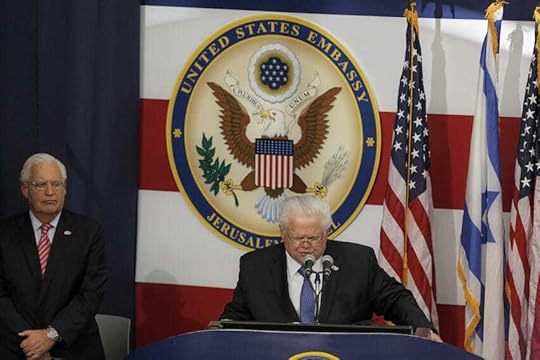 Rapture-Ready: How U.S. Policy Meshes With Armageddon
Rapture-Ready: How U.S. Policy Meshes With Armageddon
By Sandy Tolan
Because of the zealous efforts of the Trump administration, we are enabling the foot soldiers in a new Middle East holy war.
 How the Pentagon Paid for NFL Displays of Patriotism
How the Pentagon Paid for NFL Displays of Patriotism
By Emma Niles
Pro football players didn’t appear on the field for the national anthem until 2009, when the Defense Department’s “paid patriotism” began.
 The Pentagon Can’t Account for $21 Trillion (That’s Not a Typo)
The Pentagon Can’t Account for $21 Trillion (That’s Not a Typo)
By Lee Camp
This amount of money could solve the entire planet’s miseries, but the government blames its mystery spending on a “failure to correct system deficiencies.”
 Telling Nobel Winner Nadia Murad’s Story Without Trading on Her Pain
Telling Nobel Winner Nadia Murad’s Story Without Trading on Her Pain
By Kasia Anderson
Director Alexandria Bombach tells Truthdig how she avoided exploiting her subject’s traumatic past in making her new documentary, “On Her Shoulders.”
 5 Reasons Trump Won’t Fire Mueller
5 Reasons Trump Won’t Fire Mueller
By Bill Blum
Despite talk about presidential authority to fire members of the executive branch, the special counsel isn’t going anywhere anytime soon.
 The Fed Boosts Wall Street, Not Main Street
The Fed Boosts Wall Street, Not Main Street
By Nomi Prins
Today’s central bank collusion is nothing more than a massive “trickle down” subsidy for the financial system—and promises for the masses.
 The Egregious Lie Americans Tell Themselves
The Egregious Lie Americans Tell Themselves
By Jacob Bacharach
We choose to believe we’re living in the richest country in the world. Yet all available evidence suggests our wealth is largely an abstraction.
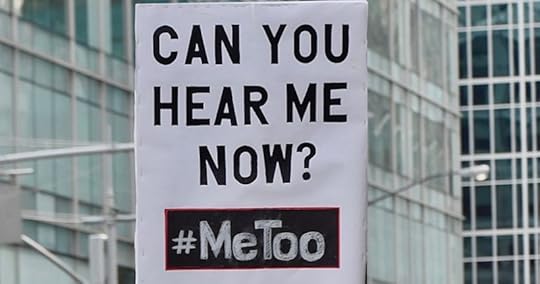 The #MeToo Movement Is Here to Stay
The #MeToo Movement Is Here to Stay
By Sonali Kolhatkar
Owing in great part to the ongoing efforts of women of color and allied groups, the movement is going strong more than a year after it began.
 The Chomsky Challenge for Americans
The Chomsky Challenge for Americans
By Paul Street
Monstrous U.S. war crimes since the early 1950s have gone down George Orwell’s “memory hole.” Now, we have no concept of empathy—or reality.
 Truth and Ethics Are Under Siege in Pakistan’s Media
Truth and Ethics Are Under Siege in Pakistan’s Media
By Zubeida Mustafa
Although the government’s grip on media outlets has loosened in recent years, dangerous constraints, plus lowered standards of professionalism, are causing deep concern.
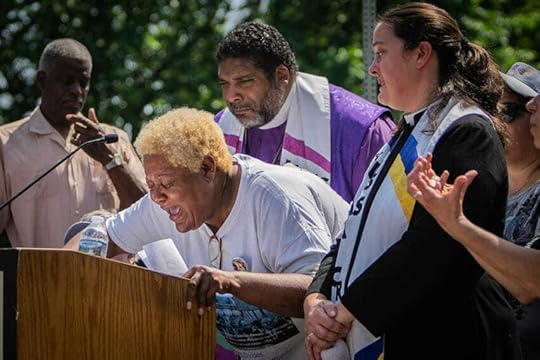 Poor People’s Campaign Remains Rich in Hope: Profiles of the Optimistic
Poor People’s Campaign Remains Rich in Hope: Profiles of the Optimistic
By Michael Nigro
This movement, which Truthdig followed through six weeks of action, has nothing to do with left or right, Democrat or Republican, conservative or liberal. It’s all about right and wrong.
 Tackling Opioid Addiction in Indian Country
Tackling Opioid Addiction in Indian Country
By Chelsey Luger
Pharmaceutical companies should be held accountable for their role in further damaging Native peoples’ well-being, but that’s only the beginning.
 The Human Cost of Getting Used to Trump
The Human Cost of Getting Used to Trump
By Bill Boyarsky
In the detention centers and the separation of immigrant families, we can see how the Constitution and the ideals of our nation are endangered by a reckless president.
 Voices From a ‘Shithole Country’
Voices From a ‘Shithole Country’
By Gbemisola Olujobi
A Nigerian writer collects reactions from fellow citizens about the Trump slur, and those reactions aren’t always what you might expect.
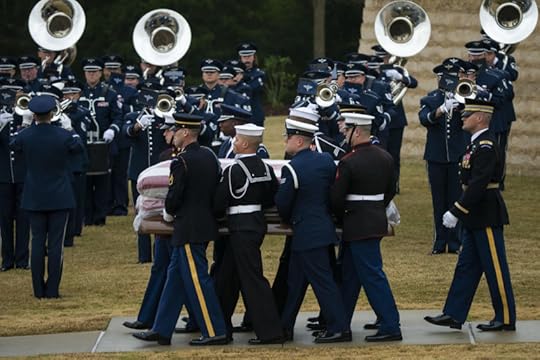 The Nauseating Spectacle of George H.W. Bush’s Funeral
The Nauseating Spectacle of George H.W. Bush’s Funeral
By Dan O’Sullivan
Pundits and politicians have transformed the 41st president into a paragon of virtue. All it took was a willful ignorance of history.

December 24, 2018
California Gov. Brown Orders New DNA Tests in Kevin Cooper Case
SACRAMENTO, Calif.—Gov. Jerry Brown ordered new DNA tests Monday that a condemned inmate says could clear him in a 35-year-old murder case that has drawn national attention.
Brown ordered new testing on four pieces of evidence that Kevin Cooper and his attorneys say will show he was framed for the 1983 Chino Hills hatchet and knife killings of four people. The items that will be tested are a tan T-shirt and orange towel found near the scene and the hatchet handle and sheath. Brown also appointed a retired Los Angeles County Superior Court judge to serve as a special master overseeing the case.
Cooper was convicted of killing Doug and Peggy Ryen, their 10-year-old daughter Jessica and 11-year-old neighbor Christopher Hughes in 1985. Prosecutors say Cooper’s claims of innocence have been disproven multiple times, including by prior DNA testing, but Cooper and his attorney argue evidence against him was planted.
Related Articles
Another Christmas on Death Row (Updated)
by
“I take no position as to Mr. Cooper’s guilt or innocence at this time, but colorable factual questions have been raised about whether advances in DNA technology warrant limited retesting of certain physical evidence in this case,” Brown wrote in his executive order.
New York Times’ columnist Nicholas Kristof, U.S. Senator Kamala Harris, state Treasurer John Chiang and reality television star Kim Kardashian are among people who called for Brown to order new DNA tests. Cooper had his execution stayed in 2004, which drew national attention at the time.
Brown issued his Christmas Eve order alongside 143 pardons and 131 commutations. They are expected to be his last clemency actions as governor, but he has until he leaves office Jan. 7 to act.
The purpose of the new testing, he wrote, is to determine whether another suspect’s DNA or the DNA of any other identifiable suspect is on the items. If the tests reveal no new DNA or DNA that cannot be traced to a person, “this matter should be closed,” Brown wrote.
Two previous tests showed Cooper, 60, was the killer, argued San Bernardino County District Attorney Mike Ramos. He previously said the tests proved Cooper was in the Ryen’s home, smoked cigarettes in the Ryen’s stolen station wagon, and that Cooper’s blood and the blood of at least one victim was on a T-shirt found by the side of a road leading away from the murders.
Cooper’s attorney, Norman Hile, said his client’s blood was planted on the T-shirt, and that more sensitive DNA testing would show who wore it. He contends that investigators also planted other evidence to frame his client, a young black man who escaped from a nearby prison east of Los Angeles two days before the murders.
Other evidence points to the killers being white or Hispanic, Cooper’s supporters say.
A San Diego judge in 2011 blocked Cooper’s request for a third round of DNA testing.
Cooper’s scheduled execution in 2004 was stayed when a federal appellate court in San Francisco called for further review of the scientific evidence, but his appeals have been rejected by both the California and U.S. supreme courts. Former Gov. Arnold Schwarzenegger twice denied Cooper’s clemency petitions.
California hasn’t executed anyone since 2006.

U.S. Judge Orders N. Korea to Pay $500 Million in Otto Warmbier’s Death
WASHINGTON—A federal judge on Monday ordered North Korea to pay more than $500 million in a wrongful death suit filed by the parents of Otto Warmbier, an American college student who died shortly after being released from that country.
U.S. District Judge Beryl Howell harshly condemned North Korea for “barbaric mistreatment” of Warmbier in agreeing with his family that the isolated nation should be held liable for his death last year. She awarded punitive damages and payments covering medical expenses, economic loss and pain and suffering to Fred and Cindy Warmbier, who alleged that their son had been held hostage and tortured.
Warmbier was a University of Virginia student who was visiting North Korea with a tour group when he was arrested and sentenced to 15 years of hard labor in March 2016 on suspicion of stealing a propaganda poster. He died in June 2017, shortly after he returned to the U.S. in a coma and showing apparent signs of torture while in custody.
In holding the North Korean government liable, Howell accused the government of seizing Warmbier for “use as a pawn in that totalitarian state’s global shenanigans and face-off with the United States.”
“Before Otto traveled with a tour group on a five-day trip to North Korea, he was a healthy, athletic student of economics and business in his junior year at the University of Virginia, with ‘big dreams’ and both the smarts and people skills to make him his high school class salutatorian, homecoming king, and prom king,” the judge wrote. “He was blind, deaf, and brain dead when North Korea turned him over to U.S. government officials for his final trip home.”
The arrest and death of Warmbier came during a time of heightened tension between the U.S. and North Korea over the country’s nuclear weapons program. President Donald Trump held a first-of-its-kind summit with North Korean leader Kim Jong Un in June 2018 and plans another next year.
The judgment may be mostly a symbolic victory since North Korea has yet to respond to any of the allegations in court and there’s no practical mechanism to force it do so. But the family may nonetheless be able to recoup damages through a Justice Department-administered fund for victims of state-sponsored acts of terrorism, and may look to seize other assets held by the country outside of North Korea.
Fred and Cindy Warmbier, who are from a suburb of Cincinnati, said they were thankful the court found the government of Kim Jong Un “legally and morally” responsible for their son’s death.
“We put ourselves and our family through the ordeal of a lawsuit and public trial because we promised Otto that we will never rest until we have justice for him,” they said in a statement. “Today’s thoughtful opinion by Chief Judge Howell is a significant step on our journey.”
The lawsuit, filed in April, describes in horrific detail the physical abuse Warmbier endured in North Korean custody.
When his parents boarded a plane to see him upon arrival in the U.S., they were “stunned to see his condition,” court documents say.
The 22-year-old was blind and deaf, his arms were curled and mangled and he was jerking violently and howling, completely unresponsive to his family’s attempts to comfort him. His once straight teeth were misaligned, and he had an unexplained scarred on his foot. An expert said in court papers that the injuries suggested he had been tortured with electric shock.
A neurologist later concluded that the college student suffered brain damage, probably from a loss of blood flow to the brain for five to 20 minutes.
North Korea has denied that Warmbier was tortured and has said he contracted botulism in custody, though medical experts said there was no evidence of that.
The complaint also said Warmbier was pressed to make a televised confession, then convicted of subversion after a short trial. He was denied communication with his family. In June 2017, his parents were informed he was in a coma and had been in that condition for one year.
Though foreign nations are generally immune from being sued in U.S. courts, Howell cited several exceptions that she said allowed the case to move forward and for her to hold North Korea liable. Those include the fact that North Korea has been designated by the U.S. as a sponsor of terrorism, that the Warmbiers are U.S. citizens and that North Koreans’ conduct amounts to torture and hostage taking.
The penalty awarded by Howell to the Warmbiers and to Otto Warmbier’s estate includes punitive damages as well as damages for economic losses, pain and suffering and medical expenses.
The lawsuit was brought on the Warmbiers’ behalf by Richard Cullen, a prominent Virginia lawyer and former U.S. attorney. He told The Associated Press that while “nothing will ever bring Otto back to the Warmbiers or erase their memories of his horrid last 18 months,” the judge’s order was “very good news for his family and friends.”

‘Vice’ Can’t Be Funny So Long as It’s Based on an Ongoing Tragedy
Like director Adam McKay’s “The Big Short,” the 2015 film that explained the housing market crash of 2007, “Vice” is a black comedy about a tragedy.
McKay’s new film focuses on the backstory of Dick Cheney’s ascension from sloppy drunk ne’er-do-well to the heavy-breathing, heart-challenged Darth Vader behind the George W. Bush presidency.
The title alludes to “vice” in at least two of its meanings: as in vice president and as in pure evil. This, I think, is one indication of how hard McKay is trying.
Comedy, say the scientists of the art, equals tragedy plus time. In the case of “The Big Short,” released almost eight years after the events satirized (and after the economy had rebounded), enough time had passed. “Vice” hits screens almost 18 years after Cheney was elected , yet it feels like a case of tragedy plus not enough time. Or, as comedians put it, too soon.
It’s not that the film is entirely misbegotten. The virtuoso performances of Christian Bale as Cheney, Amy Adams as his wife Lynne and Sam Rockwell as Dubya are nuanced and wryly funny. I laughed at the actors’ sharp caricatures of Dick and Lynne Cheney as the Macbeths of the millennium. Here is a Washington power couple who use the 9/11 attacks to further consolidate their base of power—while embodying Henry Kissinger’s maxim that power is a great aphrodisiac.
And I laughed at a scene in which Cheney, already depicted as an expert angler, reels in Dubya by feigning reluctance, agreeing to be his running mate if it’s not just a symbolic job. “I’ll handle the mundane things,” Cheney pretends to concede, in his ghostlike whisper. Mundane things like “bureaucracy, military, energy and foreign policy.” At the time, Cheney was CEO of Halliburton, which provides services to oilfields around the world. The film’s indictment of Cheney as the type of politician who led not in the public interest but in his own self-interest is clear in a subtitle informing the audience that Halliburton stock rose by 500 percent when, after 9/11, Cheney advocated war in the Middle East.
Given the present partisan chasm, though, it feels nihilistic to laugh at a movie that so puckishly delights in further polarizing Republicans and Democrats. (I did, however, laugh heartily at the contention of Breitbart movie reviewer John Nolte that liberals and conservatives were united in their hatred of McKay’s movie.)
I don’t hate “Vice.” I’ve long felt it was odd that because of Shakespeare and Peter Morgan (“The Queen,” “The Crown”), I know more about the Houses of Lancaster and Windsor than about American politics. That filmmakers such as Oliver Stone (“Nixon,” “W”) and McKay are creating American histories means that American audiences can learn the stories behind the stories of U.S. political leadership.
The most pertinentof the many stories McKay tells here is that of Cheney’s interest in advancing the “unitary executive theory,” or what Arthur Schlesinger Jr. called the “imperial presidency.” Some interpretations of the theory hold that the other two branches of the United States government cannot tell the executive branch what to do. Invoking national security concerns, after 9/11, then-Vice President Cheney expanded executive authority over domestic surveillance and so-called “enhanced interrogation.”
“Vice” is not the holiday comedy I can laugh at during the tenure of the current occupant of 1600 Pennsylvania Ave. The movie, however, does purvey one image that is hard to shake. It’s an exterior shot of a woman playing golf while behind her on the horizon is a huge fire about to swallow the back nine as Cheney swallowed the presidency. I agree with McKay on this: America is golfing as the nation burns.

Ben Carson Rolls Back Fair Housing Rules, Making Discrimination Easier
Ben Carson made headlines earlier this year for using government money to purchase a $31,000 office dining set, but the Housing and Urban Development secretary’s expensive taste in furniture isn’t his only quality garnering criticism from housing and civil rights advocates. They’re concerned that under Carson, HUD is not only ignoring, but actively gutting rules aimed at preventing racial discrimination in housing.
Carson, The Washington Post reported Monday, suspended an Obama-era fair housing rule that required local governments to submit desegregation plans before receiving federal housing funds, claiming, as NBC reported, that it was “suffocating investment in some of our most distressed neighborhoods that need our investment the most.”
He also bragged during a HUD training about suspending that rule and another holding housing lenders and landlords accountable for policies that resulted in discrimination, even if it was unintended. It was a shock to an audience who had spent their careers fighting housing discrimination. The scene, Post writer Tracy Jan observed, “illustrated the uncomfortable reality for Carson as he nears the end of his second year as HUD secretary. Though he is charged under the law with eliminating discriminatory housing practices, Carson is also a longtime skeptic of using government power to remedy such inequality.”
Related Articles
It's Not the Upholstery, Secretary Carson, It's the Cover-up
by Gregory Glover
In addition to rolling back multiple fair housing rules, Carson has “departed from the practices of recent Democratic and Republican predecessors of using their secretarial power to root out systemic racial discrimination by launching broad-based investigations into bias by banks, real estate companies and others,” the Post noted.
Even previous Republican administrations used this power more than Carson has, investigating insurance companies, banks and real estate brokers accused of not showing certain homes in certain neighborhoods to black buyers, and mortgage companies that refused to lend to black and Hispanic buyers.
“If you’re going to have this position, you have to use it,” Kim Kendrick, the former HUD assistant secretary for Fair Housing and Equal Opportunity under George W. Bush, told the Post.
At least one attempt to protect fair housing laws from Carson has proved unsuccessful.
In May, housing advocates from National Fair Housing Alliance, the Texas Low Income Housing Information Service and Texas Appleseed sued HUD for suspending the 2015 anti-discrimination rule. They alleged, as Slate reported, that “the Fair Housing Act is largely useless without the rule to support it.” In addition, the plaintiffs said in a statement that “[u]nder HUD’s pre-2015 process, jurisdictions throughout the country routinely ignored problems of segregation and discrimination while continuing to collect HUD funds.” A federal judge dismissed the suit in August.
Carson has long been against a strong government role in combating housing discrimination. In a 2015 editorial for the conservative-leaning Washington Times, Carson called fair housing policies “failed socialist experiments.” His defenders argue that rather than abandoning HUD’s mission, they are simply focusing on individual cases of reported housing discrimination rather than taking broad, industrywide action. “Nearly 500 people had their cases resolved,” HUD spokesman Jereon Brown told the Post, “versus focusing our resources on larger secretary-initiated cases.”
Robert Driscoll, a deputy assistant attorney general in the Justice Department’s civil rights division during the Bush administration, believes a focus on individual cases is in line with mainstream Republican thinking. “If an individual is rejected for housing because he is black—those kinds of cases should always gain traction in a conservative administration … Republicans are more likely to see problems with defining discrimination based on group statistics.”
Carson has used his agencies’ power to investigate housing discrimination only once, when, under public pressure, he continued an investigation into Facebook started under President Obama.
According to Aderson François, a professor at Georgetown University Law Center, this lack of action sets a dangerous precedent. And worse, “HUD is in danger of becoming something of a zombie agency,” which would make it a lot easier for banks, mortgage companies, real estate brokers and lenders to use discriminatory practices without government oversight.
He added, “If the folks you are supposed to regulate know you are essentially not enforcing the law, they have no incentive to behave.”

Bringing Home the Troops Is Not Enough
As our nation debates the merits of President Trump’s call for withdrawing U.S. troops from Syria and Afghanistan, absent from the debate is the more pernicious aspect of U.S. military involvement overseas: its air wars. Trump’s announcement and General Mattis’ resignation should unleash a national discussion about U.S. involvement in overseas conflicts, but no evaluation can be meaningful without a clear understanding of the violence that U.S. air wars have unleashed on the rest of the world for the past 17 years.
By our calculations, in this “war on terror,” the U.S. and its allies have dropped a staggering 291,880 bombs and missiles on other countries—and that is just a minimum number of confirmed strikes.
As we contemplate that overwhelming number, let’s keep in mind that these strikes represent lives snuffed out, people maimed for life, families torn apart, homes and infrastructure demolished, taxpayer money squandered and resentment that only engenders more violence.
After the horrific crimes of September 11, 2001, Congress was quick to pass a sweeping Authorization for the Use of Military Force (AUMF). While three presidents have claimed that the 2001 AUMF legally justifies these endless wars as a response to the crimes of 9/11, no serious reading of the Authorization could interpret it that way. What it actually says is:
“That the President is authorized to use all necessary and appropriate force against those nations, organizations, or persons he determines planned, authorized, committed, or aided the terrorist attacks that occurred on September 11, 2001, or harbored such organizations or persons, in order to prevent any future acts of international terrorism against the United States by such nations, organizations or persons.”
As former Nuremberg prosecutor Benjamin Ferencz told NPR a week after 9/11, “It is never a legitimate response to punish people who are not responsible for the wrong done… We must make a distinction between punishing the guilty and punishing others. If you simply retaliate en masse by bombing Afghanistan, let us say, or the Taliban, you will kill many people who don’t believe in what has happened, who don’t approve of what has happened.”
And yet here we are, 17 years later, mired in wars in which we are bombing ever more “nations, organizations (and) persons” who had absolutely nothing to do with the crimes committed on September 11. We don’t have a single real or lasting success we can point to in 17 years of war in 7 countries and “counter-insurgency” operations in a dozen more. Every country the U.S. has attacked or invaded remains trapped in intractable violence and chaos.
Please look at this chart, and take a few moments to reflect on the mass destruction it represents:
Numbers of bombs and missiles dropped on other countries by the U.S. & its allies since 2001
Iraq (& Syria*) Afghanistan Other Countries**
2001 214 17,500
2002 252 6,500 1+ (Y)
2003 29,200
2004 285 86 1 (Pk)
2005 404 176 3 (Pk)
2006 310 2,644 7,002 (Le,Pk)
2007 1,708 5,198 9 (Pk,S)
2008 915 5,215 40 (Pk,S)
2009 119 4,163 5,557 (Pk,Pl,Y)
2010 18 5,100 130 (Pk,Y)
2011 2 5,411 7,789 (Li,Pk,S,Y)
2012 4,083 93 (Pk,S,Y)
2013 2,758 51 (Pk,S,Y)
2014 6,292* 2,365 5,048 (Pk,Pl,S,Y)
2015 28,696* 947 10,978 (Pk,S,Y)
2016 30,743* 1,337 13,625 (Li,Pk,S,Y)
2017 39,577* 4,361 15,179 (Li,Pk,S,Y)
2018 5,075* 5,982 8,738 (Pk,S,Y)
Total 143,810* 73,826 74,244
Grand Total = 291,880
**Other Countries: Lebanon, Libya, Pakistan, Palestine, Somalia, Yemen
These figures are an absolute minimum of confirmed strikes, based on U.S. Airpower Summaries for Afghanistan, Iraq and Syria; the Bureau of Investigative Journalism’s count of confirmed drone strikes in Pakistan, Somalia and Yemen; the Yemen Data Project’s count of Saudi-led airstrikes on Yemen; and other published statistics. Figures for 2018 are through October for Iraq, Syria and Afghanistan; through November for Yemen; and incomplete for other countries.
There are several categories of airstrikes that are not included on this chart, so the real total is certainly much higher. These are:
Helicopter strikes: Military Times published an article in February 2017 titled, “The U.S. military’s stats on deadly airstrikes are wrong. Thousands have gone unreported.” The largest pool of airstrikes not included in U.S. Airpower Summaries are strikes by attack helicopters. The U.S. Army told the authors its helicopters had conducted 456 otherwise unreported airstrikes in Afghanistan in 2016. The authors explained that the non-reporting of helicopter strikes runs throughout the post-9/11 wars, and they still did not know how many actual missiles were used in those 456 attacks in Afghanistan in 2016.
AC-130 gunships : The airstrike that destroyed the Doctors Without Borders hospital in Kunduz , Afghanistan, in 2015 was not conducted with bombs or missiles, but by a Lockheed-Boeing AC-130 gunship. These machines of mass destruction, usually flown by U.S. Air Force special operations forces, are designed to circle a target on the ground, pouring howitzer shells and cannon fire into it, often until it is completely destroyed. The U.S. has used AC-130s in Afghanistan, Iraq, Libya, Somalia and Syria.
Strafing runs: U.S. airpower summaries for 2004-2007 include a note that their tally of “strikes with munitions dropped… does not include 20mm and 30mm cannon or rockets.” But the 30mm cannons on A-10 Warthogs and other ground attack planes are powerful weapons, originally designed to destroy Soviet tanks. They fire up to 65 shells per second and can blanket a large area with deadly and indiscriminate fire, but that does not count as a “weapons release” in U.S. airpower summaries.
Yemen: Journalist Iona Craig, who has reported from Yemen for many years and manages the Yemen Data Project (YDP) , told us she doesn’t know what proportion of actual airstrikes its data represents, and that the number of bombs or missiles recorded in each “air raid” in the YDP’s data is only a minimum confirmed number. Whatever fraction of total air raids YDP’s data represents, the actual number of bombs dropped on Yemen is certainly higher than these figures. YDP just doesn’t know how much higher.
The U.S. and allies conducting “counter-insurgency” operations in West Africa and other regions.
The U.S. public soon lost its appetite for sending our own sons and daughters to fight and die in all these wars. So, like Nixon with Vietnam, our leaders reverted to bombing, bombing and more bombing, while small deployments of U.S. special operations forces and larger numbers of foreign proxies do most of the real fighting on the ground.
Our enemies call us cowards, especially when we use drones to kill by remote control, but more importantly, we are behaving like arrogant fools. Our country is acting as an aggressor and a bull in a china shop at a critical moment in history when neither we nor the rest of the world can afford such dangerous and destabilizing behavior from a hyper-militarized, aggressive imperial power.
After U.S.-led bombing, artillery and rocket fire destroyed two major cities in 2017, Mosul in Iraq and Raqqa in Syria, the U.S. and its allies conducted fewer airstrikes in 2018, but actually increased the number of strikes in Afghanistan.
We are heading into 2019 with new initiatives to reduce U.S. military involvement overseas. In Yemen, that initiative is the result of massive grassroots pressure on Congress, and is being done in opposition to Trump’s continued support for Saudi aggression in Yemen. In the case of Syria and Afghanistan, it is coming from Trump himself, with broad popular support but bipartisan opposition from Congress and D.C. elites.
Those who are part of the bipartisan war consensus should reflect on the growing public awareness of the murderous futility of U.S. overseas wars. A survey by the Committee for a Responsible Foreign Policy revealed “a national voter population that is largely skeptical of the practicality or benefits of military intervention overseas.” Donald Trump seems to realize this public disdain for endless war, but we shouldn’t let him get away with reducing U.S. troop presence but continuing—and in some cases escalating—the devastating air wars.
A good New Year’s resolution for the United States would be to put an end to the wars we have been engaged in for the past 17 years, and to make sure we do not allow the same military madness that got us into this mess to sucker us into new wars on North Korea, Iran, Venezuela or other countries. Yes, let’s bring the troops home, but let’s also stop the bombing. Sustained advocacy toward the Trump administration and the new Congress by peace-loving Americans will be critical if we are to fulfill this resolution.
This article was produced by Local Peace Economy, a project of the Independent Media Institute.

Chris Hedges's Blog
- Chris Hedges's profile
- 1897 followers



